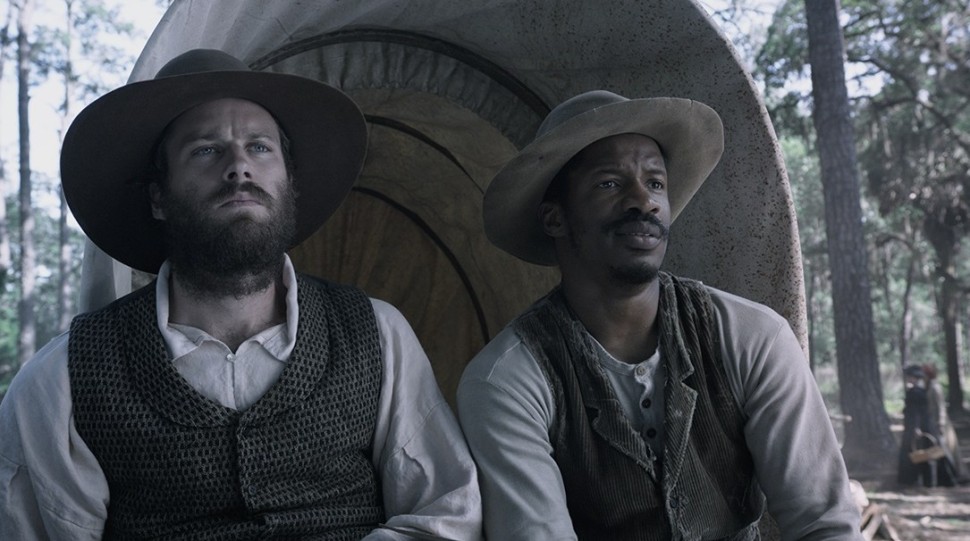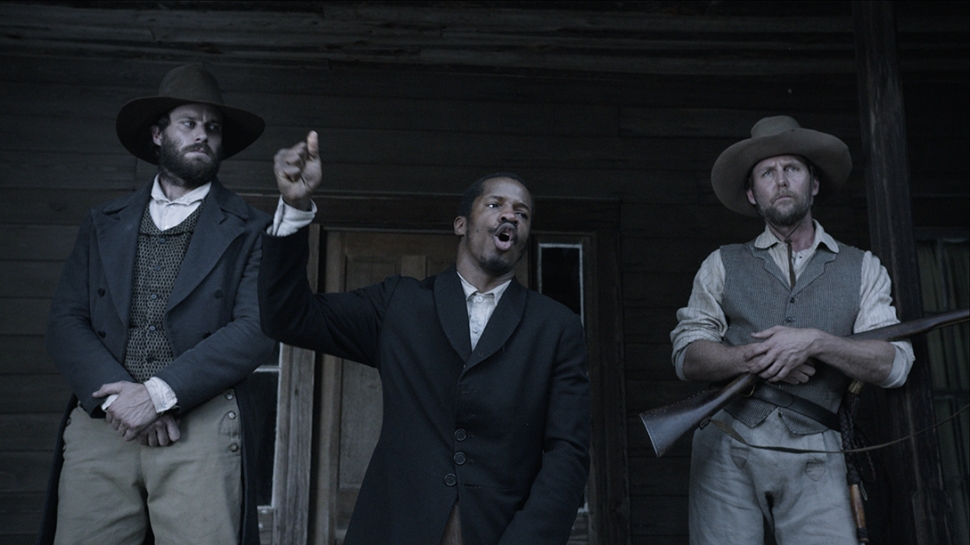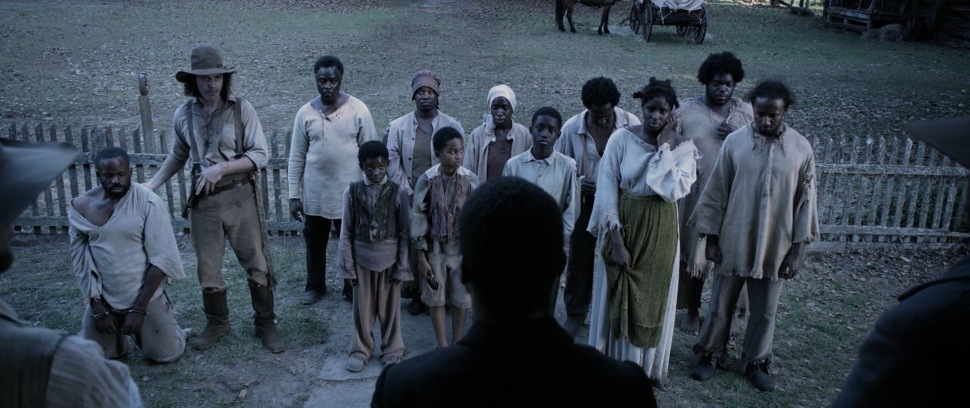A legacy reforged
It’s been almost 8 years since Nate Parker first began drafting his script to tell the story of slave-turned-preacher Nat Turner and his violent rebellion in 1831 Virginia. This movie had massive buzz behind it coming out of the Sundance Film Festival earlier this year and was acquired for a record-setting $17 million by Fox Searchlight Pictures. A white-hot reception at the festival combined with it being a strong black story starring, written, produced, and directed by a black filmmaker positioned it as an early Oscar favorite, especially in light of last year’s #OSCARSSOWHITE controversy. Due to the subject matter, similarities were naturally made to another recent Oscar-winning picture covering similar ground – 12 Years a Slave. I’ll address this comparison right from the start, The Birth of a Nation is no 12 Years a Slave, and that’s okay. Something else more pernicious needs to be addressed before I jump into my thoughts on the film, however, which is the controversy surrounding Nate Parker’s personal life. To recap very briefly, Nate Parker and his former Penn State roommate were accused of sexually assaulting a woman in 1999. Parker was eventually acquitted at trial and the woman (whose name remains anonymous) tragically took her own life in 2012. Now I’ve always struggled over the decision to separate the art from the artist, and I personally believe I’ve reached a comfortable resolution that allows me to reconcile the two. But I wholly understand that this position is deeply subjective and can be disagreed with fairly easily, particularly since we are supporting these “problematic” artists with our dollars. Regardless, Birth… is a confident, focused effort that deserves to be discussed and signals the arrival of a fresh directorial voice.

As mentioned, Nate Parker has been struggling to adapt this story for many years. He even went so far as to invest $100,000 of his own money to get production off the ground. So in a way, the fact that this movie screened and subsequently sold so well out of a prestigious festival is a personal triumph. It also helps that the movie outright works on a narrative level. The story of Nat Turner is fascinating and filled with emotional resonance. The movie opens with a young Nat being prophesied to become a leader of men. After learning how to read at a young age, Nat is immediately steered by his white owners towards the Bible as the only book he’ll ever need in his life. Fast forward to adulthood when he becomes proficient at spreading the word of the gospels to his fellow slaves, specifically the verses on obeying your master and pleasing those in power in order to please God. When word spreads to the other slave masters around Virginia about a slave preacher pacifying potential revolts with scripture, Samuel Turner (Nat’s owner) turns his proselytizing “property” into a business opportunity.

This arrangement doesn’t last long however, as Nat travels from plantation to plantation witnessing the brutality of the slaves’ living conditions and seemingly fulfilling a nefarious service that runs contrary to the message that he believes in as the chosen vessel for His word. In one fabulous scene, Nat defies a white pastor in a Biblical battle of words – countering every verse flung at him pertaining to subjugation and the inferiority of weaker men with verses about avoiding false prophets and fighting back against those who wish to enslave others. Nat eventually charges up enough courage and bluster to recruit some able-bodied men to fight back against their captors and exact bloody justice. Their epic rebellion is short-lived however, as the artillery of the government forces easily overpowers the slaves’ hatchets and hammers. This in a sense is the strength of the movie. The moments when we see Nat’s transformation from a docile God-loving preacher, to a vengeful wrath-seeking warrior. Where the film falters is in its eagerness to set up this climatic event. I would’ve preferred to have more scenes of introspection and gradual inflammation of the tension between Nat and Sam Turner so as to feel the shift in Nat’s character. Or of the slaves and their desire to be liberated by any means. Or a greater sense of the community that Nat grow up in. The movie has a handful of these scenes but would have been better served overall to juxtapose the righteous words of God with the harsh savagery of slavery. But because this is a singular story told with a singular vision, the focus here is solely on Nat and his internal struggle. Consequently, the resulting climax does not feel entirely earned. Birth… is not concerned with making a larger statement on the antebellum South. Whatever musings it has on the evils of slavery are filtered through Nat Turner’s eyes, and by extension Nate Parker’s.

The Birth of a Nation is undoubtedly a powerful film. The forces behind and in front of the camera are genuinely felt and I admire Parker’s commitment to such a risky project. Even the title itself was deliberately picked by him to reverse and reclaim the racist overtones of the 1915 D.W. Griffith film of the same name. The movie looks great and has some moments of pure visual poetry. There are several shots of spiritual visions where Nat fantasizes about angels and the afterlife that inter cut the main story. But the imagery on a whole is bleak and often times rough to gaze at. There is one shot in particular of several bodies hanging from multiple tree branches that frankly wears its welcome a minute or so too long. But perhaps that is Parker’s intention. To make us the audience as uncomfortable as possible. These, after all, weren’t happy times and they certainly weren’t resolved by diplomatic means. No, change here is bloody and brutal. As Nat responds to one of the house slaves questioning his motives for revolution by reminding him that God is a God of love, “I’ll also remember that He is a God of wrath.”

This movie carved in stone the fact of “No Justice, No Peace”. Thanks for good work and presentation.
LikeLiked by 1 person
Indeed when institutional systems fail, people will implement their own brand of justice.
LikeLike
Nader this is your best review yet. For a second I thought was reading a variety article. Everything was well written from the background info on both the story as well as the director to the compelling synopsis. Has me excited to watch this movie. Keep it up.
LikeLiked by 1 person
Thanks for the kind words! Your support keeps me motivated.
LikeLike